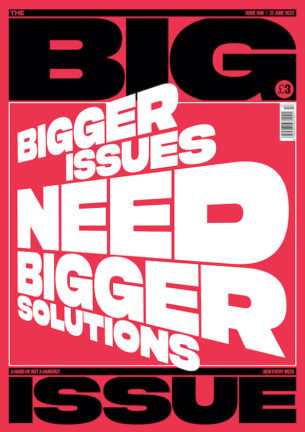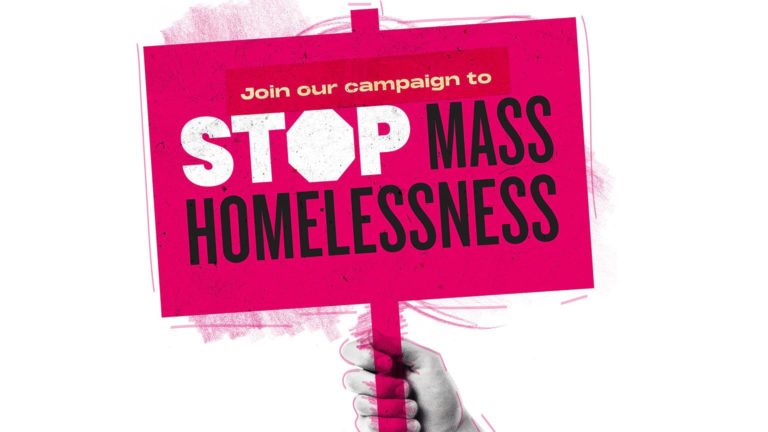
Universal credit was increased by £20 a week from March 2020 due to the financial hardships caused by the pandemic but that was withdrawn by the government in October last year.
“We had the universal credit uplift removal,” Lyman says. “Then we had the electricity bills go up and our food go up. Our benefits haven’t lined up with the rate of inflation, so that’s left us in a horrible situation. I find myself, monthly, on a deficit of between £200 and £300. That’s because all the prices have shot up.
“The support isn’t in place as much as it should be for people in our situation, so there’s a lot of juggling that happens. I have the kids on a 50/50 basis. When I don’t have the kids, sometimes I’m going one or two days without actually having a meal so that I’ve got enough to eat for when they’re here.”

From just £3 per week
Take a print or digital subscription to The Big Issue and provide a critical lifeline to our work. With each subscription we invest every penny back into supporting the network of sellers across the UK.
A subscription also means you’ll never miss the weekly editions of an award-winning publication, with each issue featuring the leading voices on life, culture, politics and social activism.
Over eight million families on benefits such as universal credit will receive an initial cost of living payment of £326 on July 14, the government has confirmed. A second instalment of £324 will be sent to qualifying low-income households in the autumn.
“The government has announced this payment scheme which is all good and well,” Lyman says. “But we’ve got to the point where it’s taken so long for them to actually move on their decision, that we’re already in a situation of trying to refight debt. This time, there’s no way I can access any credit at all. It’s horrible. It’s stressful. It definitely makes me poorly sometimes.”
He adds: “You feel worse. The sleepless nights happen more. The worry is there more. The anxiety around how you move forward, the stress of the potential of having to turn around and give up a court order of access to your kids just because you can’t afford to have them.
“I worry about being able to keep them warm during the winter, which is just around the corner now really. Time has moved very quickly over these past few years.We’re once again approaching what potentially could be a very cold winter. It all becomes a reality. And the support is limited out there.”
Families are falling into more debt because of the crisis. On average, low-income households are £1,600 out of pocket. They have taken on a total of £12.5billion in debt in 2022 alone, according to research from the JRF.
Lyman was given free debt help from the charity Christians Against Poverty in 2019, and he is keen to stress that there is help out there for people who need it. But he has now found himself in a situation where he might have to return to the charity again for support, instead of being able to help other people as he had hoped.

Help us stop mass homelessness
Unless we act, the UK is facing a homelessness crisis this autumn.
Campaigners and charities are calling on the government to act now to tackle the cost of living crisis. The JRF, for example, is calling for an overhaul of the benefits system and to allow low-income families to pay their debt back at affordable rates.
Katie Schmuecker, of the JRF, says: “Rather than lurching from emergency to emergency, the government must get ahead of this problem. A simple thing they can do immediately to make a difference is to stop deducting debt repayments from benefits at unaffordable rates.
“The way the government collects debts is making an already bad situation far worse, by making an already low basic rate of social security even lower still. It leaves too little to cover the essentials at the best of times, let alone during the biggest cost of living crisis in a generation – a crisis which shows no signs of abating.”
Lyman agrees that more needs to be done, adding: “We need to see an actual realistic solution rather than dangling the carrot in front of us. We need to be able to afford our groceries and afford our extortionate electricity bills which are increasing again.
“Where is the protection? It doesn’t feel like there is any. It leaves you helpless when we should be enjoying the best years of our children’s lives before they rush off and be adults. We’re left with the stress of trying to make sure everything’s okay so when the reality is things are not okay. Things are a mess.”





